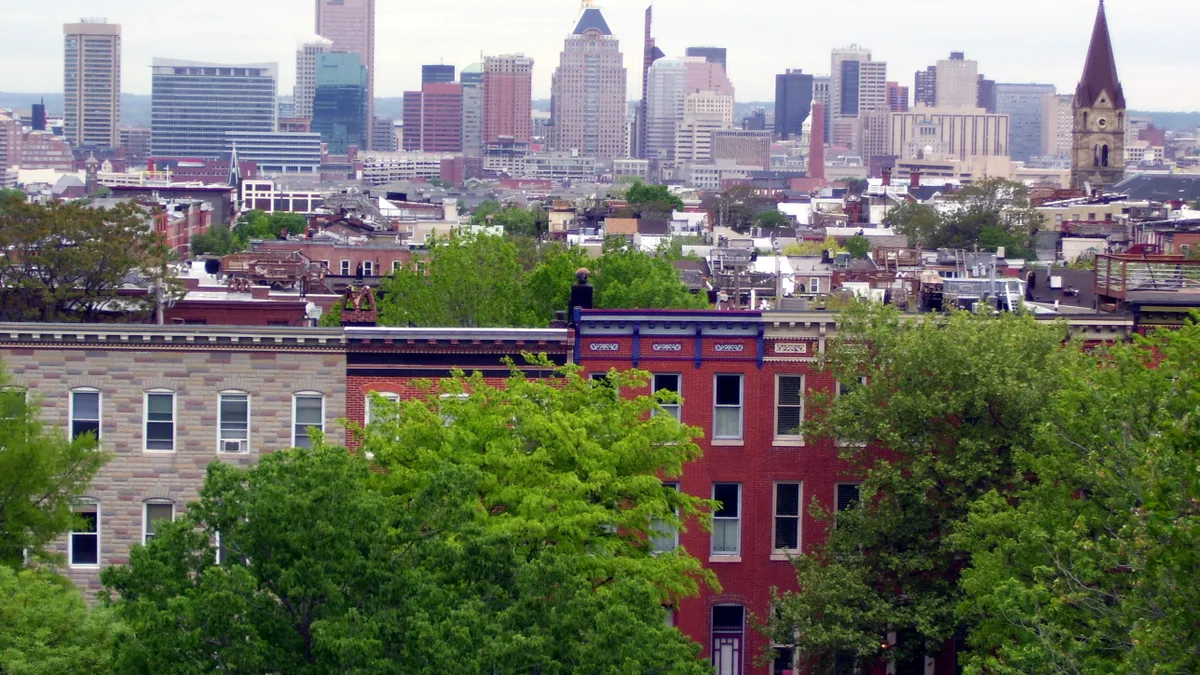Dive Brief:
- A handful of Baltimoreans are getting ready to install hundreds of air monitoring sensors around Charm City, as reported by The Baltimore Sun. While the city has a few air quality monitors within its borders, air quality can vary from block to block — so a researcher at Johns Hopkins University is trying to gather more data.
- Young people from the city, through the nonprofit Civic Works program, are working with the the Hopkins program (known as Baltimore Open Air) to assemble solar-powered, air-monitoring cubes. The sensors will provide real-time data with daily public updates.
- The project was funded in part through an Environmental Protection Agency competition called the Smart City Air Challenge.
Dive Insight:
Baltimore Open Air is in good company. OpenAQ is a real-time, open data project to create a home for air quality data in one place, combating some of those threats. Governments, researchers and citizen scientists around the world can publicly share air quality data, with 5 million to 8 million data points added daily. All of this data, however, has no universal formatting standard, sometimes exists only temporarily online, or might be threatened as political winds shift.
Air quality data is important for policy makers trying to improve the quality of life for their residents. Poor air quality is responsible for one in eight deaths around the world, according to the World Health Organization. Data on air quality, however, is scarce in areas where a lot of those deaths are happening — including poor regions of the world like southeast Asia and the Pacific west. Small, easily produced sensors, like the ones being put together by the team in Baltimore, could be useful in poor and developing regions to measure air quality.
More finely-tuned data can help places like Baltimore and the Bronx, which have suffered from reduced air quality from nearby industry, a problem activists label environmental racism. Cities, where air pollution tends to be concentrated, are an ideal target for the collection of air quality data. And, if Baltimore's "citizen scientist" model proves successful, it could serve as a case study for other cities to model programs off of.











